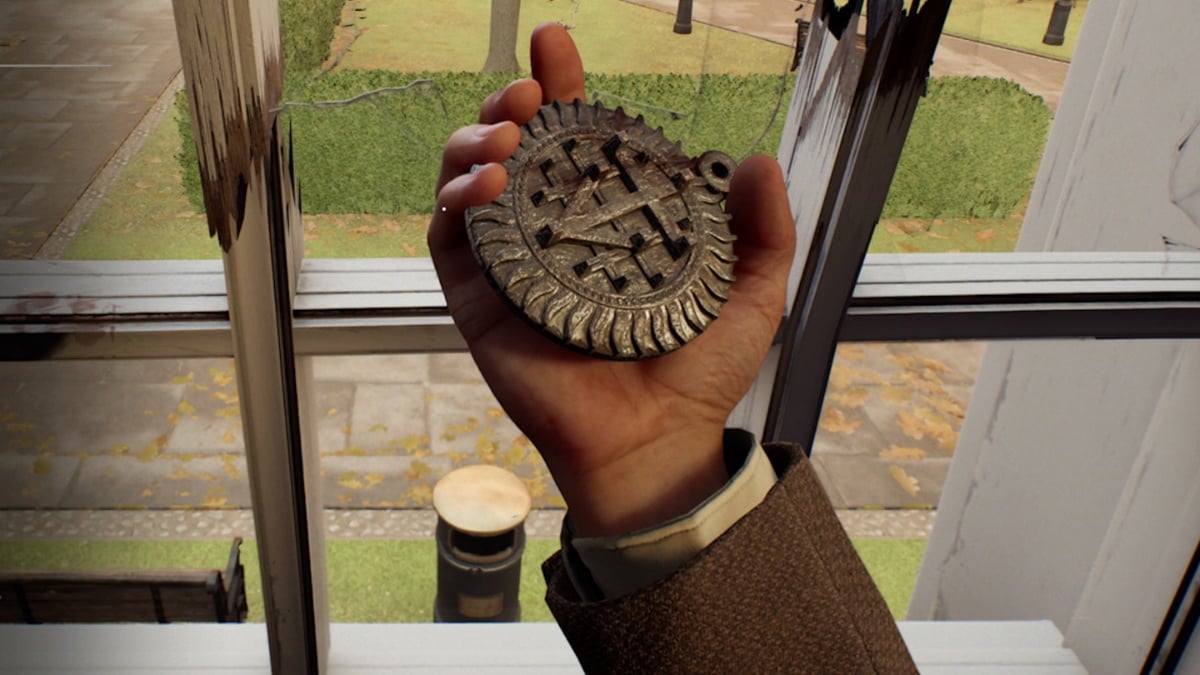A new esports startup plans to tackle a tough industry issue: wagering.
Unikrn (that’s unicorn, not unikern) fancies itself a gaming, esports, and entertainment company. But its big offering will be betting on esports.
“We’re in a new industry here,” Rahul Sood, Unikrn co-founder and CEO, says. “People bet currently on esports, and they do it in places that aren’t safe, in places where its hard to get your money out, it’s not the most reliable platform. We think that there is room for a company like us to be the global standard for responsible betting on esports.”
The Seattle, Wash.-based company is partnering with Australian wagering titan Tabcorp to make it a reality. Tabcorp, a $5 billion company ranked as a global gambling leader, will handle the logistics of legality, liquidity, and safety for Unikrn as they plunge into the sticky market of esports wagers.
At launch, users in Australia will be able to wager on League of Legends matches. The company plans to expand service to Dota 2, Counter-Strike: Global Offensive, and StarCraft 2 while also extending their reach across the globe, securing licenses to serve Canada, countries across Europe, and anywhere where spectator wagering is legal.
That, of course, excludes a few of the biggest markets in esports: the United States and China. It is not legal to spectator wager on sports in either nation, but that’s something Sood sees changing.
Sood is no stranger to gaming or startups. He founded VoodooPC, one of the first luxury computer brands, in 1991, which was gobbled up by Hewlett-Packard in 2006. After leaving, he managed Microsoft Ventures, essentially an incubator for startups. In November 2014, he left to create Unikrn, and quickly raised $3 million in seed money, which he used to gobble up two other ventures. One, German-based Playall, offered a way for gamers to bet with each other on games they played, a foundation for some of Unikrn’s wagering platform. The other, Australian company Pinion, offers gaming servers a way to show ads to their players, essentially monetizing their game server traffic.
Is betting Unikrn’s primary business? “The primary business is we’re an esports company,” Sood says. “We’re a gaming and entertainment and esports company, and we’re coming up with new ways to bring esports to the masses.”
That might sound contradictory. But Sood is earnest about betting as a driving force in esports. He believes in breaking the betting stigma down, not kowtowing to it, and that opening up betting really can bring esports to new audiences. And Unikrn really does have more going on, even if betting is the focus for now.
Take Pinion. When Unikrn acquired the company in November, Pinion served some 2.5 million players on gaming servers in various games running on Valve’s Source engine, like Counter-Strike: Global Offensive. Today, 9 million people see ads from companies like Coca Cola, McDonalds, and Red Bull through the Pinion network, which Unikrn plans to revamp and tie into their own brand.
“We have a fairly significant business there,” Sood says. “You can imagine we have a window that reached nine million gamers around the world. Currently we serve ads…. Imagine if we’re able to use that window to serve other things?”
Anyone who has hosted their own server in their favorite game knows it’s hardly free, and Pinion eases the burden—on both players, and developers, who don’t have to pay to host their own server architecture. “There’s other ways for us to build this Pinion network,” Sood says. “We’re working on that now. We haven’t really announced anything yet, but there’s plenty of things coming including other publishers who want to come on board with us and work with us.”
But the bigger challenge, right now, will be to get esports betting off the ground.
Esports and betting: wary partners
Esports and betting are no strangers. Last year, match fixing scandals hit StarCraft 2, Counter-Strike: Global Offensive, and Dota 2, with competitors throwing games to turn a quick buck. While there’s certainly a dark side to gambling, games like Counter-Strike owe a lot to betting, Sood believes. And he’s right to think so.
“When CS:GO first came it out it was really nowhere. It wasn’t growing. It was pretty small,” Sood says. “But it’s grown on the back of two things: betting and esports. It’s been such a huge deal! Valve completely unlocked the formula.”
For a full year after its Aug. 2012 launch, Counter-Strike: Global Offensive’s peak player count never surpassed launch numbers. But after the introduction of the in-game item economy, followed by esports events that let fans bet those items for real-world cash, it exploded, with every subsequent event giving a permanent boost to play counts.
Sites like CSGOlounge allow users to wager in-game items on Counter-Strike matches, often totaling thousands of dollars. A January report on a high profile match fixing scandal revealed that one fix brought in over $10,000 in wagers, for a low stakes, low profile match.
But betting using in-game items is sometimes risky business. Even tougher is liquidating the merchandise once you want to cash out—you need to sell the items for real money, and even if there’s willing buyers, that doesn’t mean you can’t get scammed, especially without a trusted middleman. Valve offers little protection. That’s where a company like Unikrn could potentially step in.
“We wanted to build a safe environment for people to bet,” Sood said. “Safe meaning it has to be legal, it has to be safe in terms of the money, the liquidity has to be there, and it has to be fun at the same time.”
Tabcorp’s proven technology handles most of the heavy lifting for the liquidity, though the legality issue is a sticky one in places like the United States and China.
“[Tabcorp] are rated to be one of the most ethical, responsible wagering companies in the world,” Sood says.
That should also help deal with what’s become a sticky topic in esports recently—match-fixing. Thanks to Tabcorp’s technology, Unikrn can track odd shifts in the line to detect any betting anomalies. But Sood says they aren’t too worried about it.
“I think when it does happen in esports they just amplify it and make it such a big deal because when it does happen, it’s a new thing,” he said. “The notion that people make a living playing video games is still new for people. In a case like this there’s always going to be controversy, and we’re prepared to deal with it.”
As for the fun part, Unikrn is offering services similar to some other betting of fantasy platforms: streams of the games and a place to talk about them. It also plans to produce own original content, including interviews with players, which it’ll host on its own stream.
“We’re trying to curate the experience so that’s it’s nice,” Sood said. “You don’t just go to a crappy site and place a bet. It’s going to be a beautiful experience.”
“If you come to our website, you’ll be able to watch the streams, see what people are betting on, and even chat with them,. You can be part of the action without actually putting your money on the table. Our priority right now is to build out this business, bring on more titles, and connect it to all of our gaming communities worldwide. Eventually we completely believe that the US will be a legal market, but until then that’s our focus.”
But even in countries where it’s legal, it may be hard to overcome perceptions of gambling in esports, especially after a year of high profile scandals.
Stopping the stigma
“Betting is a normal thing,” Sood says.
In the United States in particular, online gambling has a certain stigma attached to it. It’s illegal. It’s a shady, seedy activity, one suited for incognito mode on your browser as you step into a slightly darker side of the web. But for much of the world, like Australia and the United Kingdom, it’s just normal, everyday business.
“It is so mature in other markets,” Sood says. “It’s just part of the culture. We’re trying to send a message to the market: [wagering] is actually okay.”
If you do it in a responsible way, Sood says, betting can enhance the way you enjoy a game. “It brings a new level of adrenaline to the game itself,” he explains. “We feel like there’s a space for a company like us to make it happen.”
That’s a sentiment shared by new NBA commissioner Adam Silver, who said the legalization of sports betting was “inevitable” in November 2014. Plus, he says, it makes fans “more engaged,” a boon for the sport.
“We absolutely agree with him,” Sood says. “It’s kind of a joke that in the U.S. its legal to do it in the casino but its not legal to do it outside of the casino.”
One loophole is, of course, fantasy sports (or esports, in this case.) Predicting which players will perform well instead of which team will win a match is different in the eyes of the law, thanks to the veneer of a skill-based game layered over what’s a very similar activity.
In some ways, the two aren’t the same. Sood sees betting as more accessible to a certain audience, especially in esports, because it’s hard to get invested in specific players through rampant team switching and the short careers of esports professionals. Betting offers the same thrill and engagement with a simpler interface: you win or you lose.
The sky is the limit
Similar companies have already seen rapid growth. Fantasy esports website Vulcun opened the year with a $1 million prize pool, but boosted it to $4 million in just two months due to their products success. Then they pulled in $12 million in Series A funding.
Of course, Sood isn’t worried about raising cash. As the man behind Microsoft Ventures, with connections among investors worldwide, “raising money is hardly a challenge,” he says. “The challenge is getting smart money. You have to go out and find people who are interested in the space that can add value to the business.”
Right now he’s got an A-list Hollywood actor and esports fan signed on, as well as several other “big” people in the entertainment biz, boutique venture capitalists, and more from around the globe.
But getting funded is just part of the battle, he says. “You’re only successful when you build a business that has real revenue, real customers.”
If the esports in-game item betting markets and companies like Vulcun are any indication, that may not be a problem for Unikrn.






Published: Apr 28, 2015 04:00 am